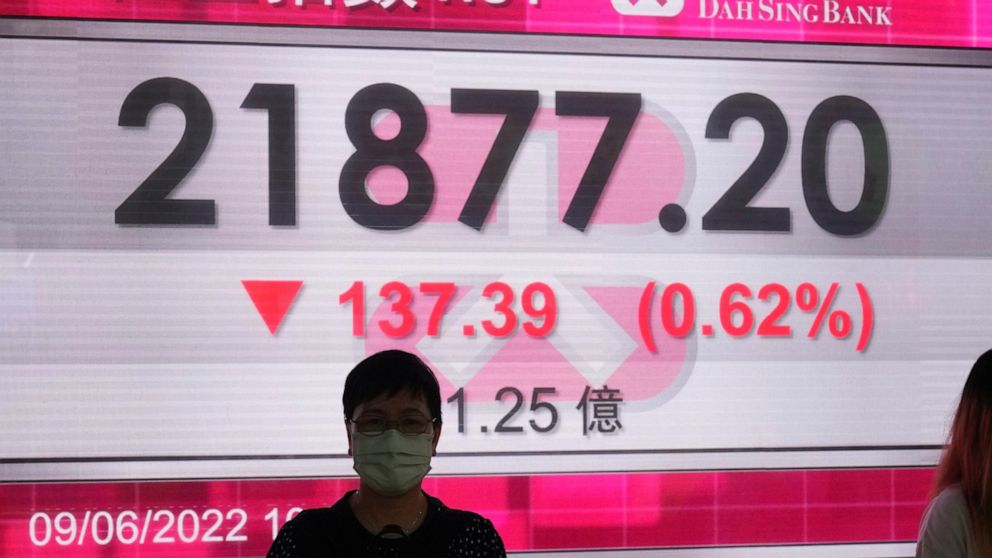US stocks lose ground; European markets slip on rate news
NEW YORK — Stocks fell in morning trading on Wall Street Thursday as investors struggle to find some direction for markets amid persistently choppy trading.
The S&P 500 fell 0.3% as 10:21 of a.m. Eastern. The Dow Jones Industrial Average fell 94 points, or 0.3%, to 32,816 and the Nasdaq fell 0.2%.
Banks and health care companies fell broadly. Capital One shed 1.7% and Eli Lilly fell 1.1%.
Retailers and makers of consumer goods mostly gained ground. Dollar General rose 1.3% and Costco rose 2.1%.
Bond yields edged higher. The yield on the 10-year Treasury rose to 3.04% from 3.02% late Wednesday.
Major indexes have been lurching between gains and losses, sometimes by the hour. Despite the volatility, they are mostly unchanged for the week. Overall, the market is still in a deep slump. The benchmark S&P 500 index has fallen in eight of the last nine weeks.
Rising inflation and central banks’ attempts to temper the impact with interest rate increases remain the key concerns for Wall Street.
European markets were posting bigger declines after the European Central Bank said it would start raising interest rates next month for the first time in more than a decade. That would bring Europe’s policymakers in line with other central banks like the Federal Reserve in the U.S. in making a turn away from supporting the economy with low interest rates and toward fighting inflation with higher interest rates.
The Fed is widely expected to raise its key short-term interest rate by half a percentage point at its meeting next week. That would be the second straight increase of double the usual amount, and investors expect a third in July.
The interest rate increases from central banks are an attempt to slow economic growth enough to temper inflation, particularly by taking pressure off the persistent supply and demand disconnect at the root of the problem.
Wall Street is worried that the Fed could go too far too fast in raising rates and actually push the economy into a recession, especially with economic growth already slowing.
Businesses have had to raise prices on everything from food to clothing and many, including Target, have warned about waning demand. Consumers are seeing inflation take a bigger bite out of their wallets and have shifted spending to focus more on necessities or services, like travel, rather than buying discretionary items like electronics or clothing.
Higher gas prices have been putting a tighter squeeze on both consumers and businesses, raising concerns that inflation could persist. U.S. crude oil prices were relatively steady on Thursday but are up more than 60% this year, with much of the jump stemming from Russia’s invasion of Ukraine.
Lockdowns in major Chinese cities because of COVID-19 have added even more pressure to global supply chains, though some of the impact could be easing. China reported its exports surged 17% over a year earlier in May, up from April’s 3.7% growth, as coronavirus precautions were eased in Shanghai and other cities. Imports rose 4%, accelerating from the previous month’s 0.7% growth.
![]()


